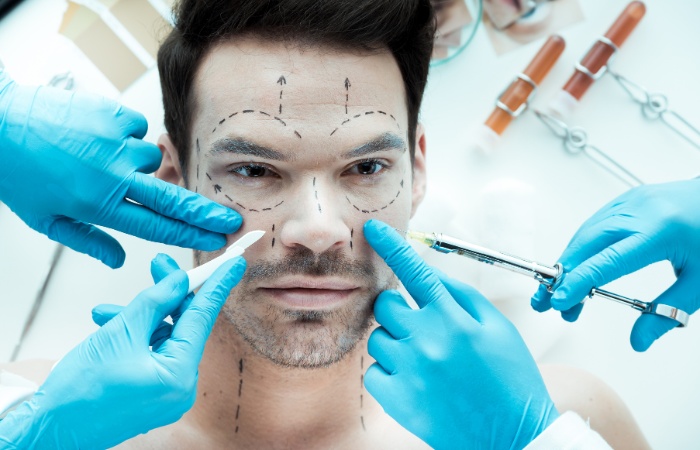Does Plastic Surgery Help Self Esteem? Boost Your Confidence

Plastic surgery has become an increasingly popular option for those who want to alter their physical appearance. Whether for aesthetic reasons or to correct a physical defect, many people turn to plastic surgery to improve their self-esteem.
But does plastic surgery help self esteem, or is it simply a temporary fix? Yes, plastic surgery can help improve self-esteem in some cases. Research has shown that people who have undergone plastic surgery experience increased confidence and improved self-image.
In this blog, we will explore the relationship between plastic surgery and self-esteem. We will delve into the psychological effects of cosmetic procedures, examining the potential benefits and drawbacks.
The Relationship Between Physical Appearance and Self-Esteem
Research has shown that physical appearance can significantly impact an individual’s self-esteem. For some, cosmetic procedures and surgeries can improve their self-confidence and quality of life.
However, it’s crucial for individuals to have realistic expectations and to choose board-certified plastic surgeons who prioritize patient safety and satisfaction. Body dysmorphic disorder, a psychiatric disorder where individuals obsess over perceived flaws in their appearance, can also lead to unhealthy attitudes toward cosmetic surgery.
It’s crucial for individuals to prioritize their mental health and work with a healthcare team to address any underlying issues. Additionally, society’s emphasis on appearance can create concerns and negatively impact self-esteem, highlighting the need for holistic approaches toward self-worth and acceptance.
Does Plastic Surgery Help Self Esteem?
Plastic surgery can potentially help self-esteem, but it’s not a guaranteed solution. Cosmetic procedures can improve the physical appearance of a person’s body or face, increasing their confidence and satisfaction with their appearance.
However, studies have shown that people who have unrealistic expectations or suffer from body dysmorphic disorder may not experience a significant boost in self-esteem. It’s essential to have a realistic understanding of cosmetic surgery’s potential outcomes and limitations and to work with a qualified and experienced plastic surgeon.
Additionally, other factors, such as mental health and overall quality of life, can also affect a person’s self-esteem. Ultimately, plastic surgery should be viewed as a personal decision and not a cure-all for self-esteem issues.
How Does Plastic Surgery Help Self Esteem?
While the primary goal of plastic surgery is to improve one’s appearance, it has also been found to positively impact one’s self-esteem, which can significantly impact one’s overall quality of life. Here, we will discuss how plastic surgery can help improve self-esteem.
Improves Physical Appearance
One of the most significant ways plastic surgery can help boost self-esteem is by improving a person’s physical appearance. Many people are unhappy with certain aspects of their appearance, such as the size or shape of their noses, breasts, or body.
Plastic surgery can help correct these issues, allowing people to achieve their desired look. When people feel more confident about their physical appearance, they are more likely to feel good about themselves overall.
Addresses Insecurities
Another way plastic surgery helps improve self-esteem is by addressing insecurities. Many people feel self-conscious about certain physical features, such as a crooked nose or small breasts.
These insecurities can affect their self-esteem and confidence in social situations. Plastic surgery can help correct these insecurities, making people feel more confident and self-assured.
Boosts Confidence
People who undergo plastic surgery often report a boost in their confidence levels. This increase in confidence can positively impact their personal and professional lives.
For example, people may feel more comfortable speaking up in meetings or networking events or more confident in social situations. This boost in confidence can lead to a more fulfilling life overall.
Reduces Anxiety and Depression
In addition to boosting self-esteem and confidence, plastic surgery can help reduce anxiety and depression. People who feel unhappy with their appearance may experience anxiety and depression, affecting their daily lives.
Plastic surgery can help alleviate these feelings by addressing the source of the insecurity. When people feel more confident about their appearance, they are less likely to experience anxiety and depression.
Encourages a Healthier Lifestyle
Plastic surgery can also encourage a healthier lifestyle. People who undergo plastic surgery often want to maintain their new appearance and may adopt healthier habits.
For example, they may start exercising regularly or eating a more nutritious diet. These lifestyle changes can positively impact their physical and mental health, further boosting their self-esteem.
The Pros and Cons of Plastic Surgery for Self-Esteem
Plastic surgery has recently gained popularity as an option for enhancing one’s physical appearance. However, the decision to undergo plastic surgery is personal and should be considered carefully. Here we’ve explored the pros and cons of plastic surgery for self-esteem.
Pros of Plastic Surgery for Self-Esteem
- Increase in Self-Esteem: Studies have shown that plastic surgeries can significantly improve self-esteem. Plastic surgery can enhance the appearance of a person’s body, leading to increased self-confidence and improved quality of life.
- Improved Appearance: Plastic surgery can enhance a person’s physical appearance by altering their body features. Surgeries such as breast augmentation, nose jobs, and skin tightening can improve a person’s aesthetic appearance and help them feel more comfortable in their skin.
- Realistic Expectations: A skilled plastic surgeon can work with the patient to set realistic expectations for the outcome of the surgery. This can help the patient have a positive attitude toward the procedure and the outcome.
Cons of Plastic Surgery for Self-Esteem
- Body Dysmorphic Disorder: Plastic surgery is not recommended for people with body dysmorphic disorder, a mental health condition characterized by an obsessive focus on a perceived flaw in one’s appearance. These individuals may seek multiple cosmetic procedures, leading to an unhealthy dependence on surgery to improve their self-esteem.
- Risks of Surgery: As with any surgery, there are risks associated with plastic surgery. These risks include infections, scarring, and adverse reactions to anesthesia. It is essential to consider the potential risks carefully before undergoing any cosmetic procedure.
- Contingent on Appearance: People who place too much emphasis on their appearance may be at risk of developing an unhealthy dependence on plastic surgery. This can lead to unrealistic expectations and disappointment with the outcomes of surgeries.
Read Also: Do Bullies Have Low Self Esteem?
What to Consider When Making an Informed Decision About Plastic Surgery for Self-Esteem
Making an informed decision about plastic surgery is crucial, considering various factors to ensure the outcome aligns with one’s expectations.
- The Surgeon: Choosing the right plastic surgeon is critical in achieving desirable outcomes. Patients should only consult with board-certified plastic surgeons experienced in performing the desired procedure.
- Realistic Expectations: Having realistic expectations is vital when considering plastic surgery. Patients must understand that the procedure won’t transform their lives or solve all their problems but can significantly increase their self-esteem.
- Body Dysmorphic Disorder: Individuals with body dysmorphic disorder may have unrealistic perceptions of their physical appearance and may not be good candidates for plastic surgery. A thorough consultation with a mental health professional can help identify if an individual is fit for surgery.
- Mental Health: Before plastic surgery, individuals should undergo a comprehensive mental health evaluation to ensure healthy self-esteem and a stable mental state.
- Outcomes: The outcomes of plastic surgery vary depending on the procedure, the patient’s body type, and overall health. Patients should clearly understand the possible risks and complications associated with the procedure.
Read More:
What Is The Difference Between Self Image And Self Esteem?
Why Is Self Awareness Important In Mental Health?
Final Thoughts
Overall, the answer to the question “Does plastic surgery help self esteem?” appears inconclusive. While some people may feel a sense of self-confidence due to a successful plastic surgery procedure, others may not receive the same level of satisfaction.
Furthermore, the decision to undergo plastic surgery should not be taken lightly, as there are potential risks and complications associated with the procedure. Therefore, consider plastic surgery’s potential risks and benefits before deciding to go through with it.



